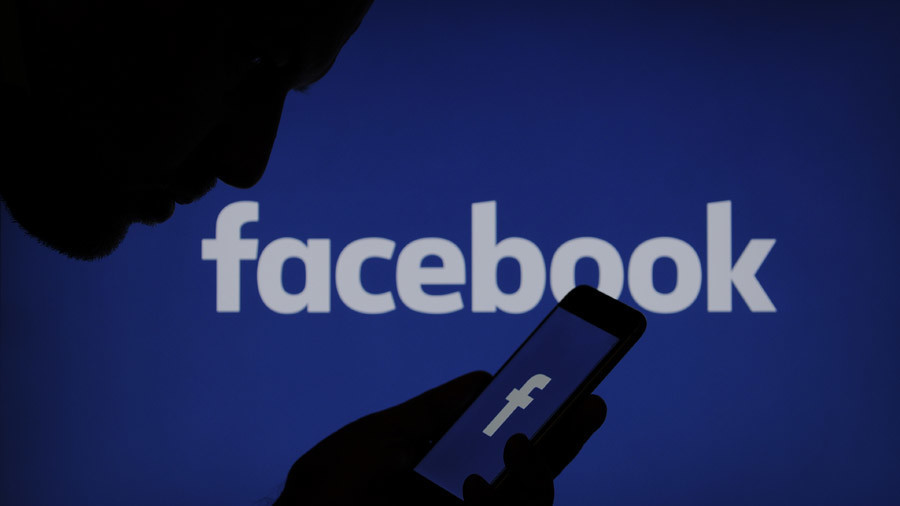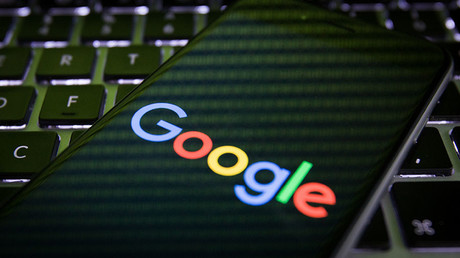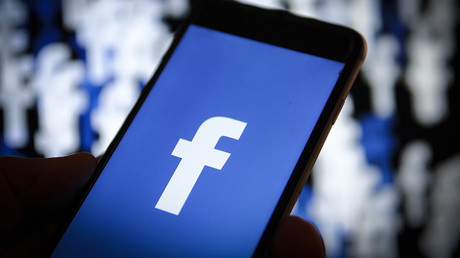Ex-Facebook chiefs deplore its ‘social destruction’ – and it’s got nothing to do with Russia!
Finian Cunningham (born 1963) has written extensively on international affairs, with articles published in several languages. Originally from Belfast, Northern Ireland, he is a Master’s graduate in Agricultural Chemistry and worked as a scientific editor for the Royal Society of Chemistry, Cambridge, England, before pursuing a career in newspaper journalism. For over 20 years he worked as an editor and writer in major news media organizations, including The Mirror, Irish Times and Independent. Now a freelance journalist based in East Africa, his columns appear on RT, Sputnik, Strategic Culture Foundation and Press TV.

Former executives at Facebook are now coming out to condemn how the social media giant is “destroying society and civil discourse” and spreading “misinformation.” Moreover, they say, it’s got nothing to do with Russia.
One of the former Facebook gurus is Chamath Palihapitiya who told a business conference in the US that he doesn’t even let his own children use the social media platform, so harmful is it, in his view.
Those admissions should be seen as a welcome rational perspective to counter the hysterical Western mainstream media discourse propagated over the past year, which seeks to blame Russia for interfering in elections and sowing discord in society – largely, it is claimed, through manipulation of social media like Facebook.
Before getting to the admissions from the former Facebook executives, let’s recap on the pandemic delirium of alleged Russian influence.
US Congressional committees – at huge taxpayer expense – haul social media executives to face McCarthyite interrogations into “Russian interference”; British Prime Minister Theresa May accuses Russia of “sowing division” in Western societies; NATO and aligned think tanks, and media accuse the Kremlin of destabilizing elections with “fake news” sluiced through social media.
Over the past year, it has become almost an article of faith among Western governments, media and think tanks that Russian state agents used Facebook and other social media to wage cyberwar. “Russia is at war with us,” say hawkish senators like John McCain.
The biggest victory for the Russians, we are told, was the election of Donald Trump to the White House.
Incredibly, the Kremlin is accused of manipulating Facebook, Twitter, YouTube, and so on, by placing adverts and posts to orchestrate public opinion across entire Western societies. Never mind that the evidence for this alleged nefarious scheme is tenuous at best, and never mind that the money spent on ads supposedly placed by Russians is paltry compared with the total revenues earned by social media companies.
The dearth of rational perspective in this narrative of “Russian meddling” is largely driven by Cold War-style stereotypical Russophobia. The notion that Russian agents or “Kremlin-sponsored news media” could sway voters and societies completely misses the forest for the trees. That is that Facebook and other mainly US-based social media have already a preponderant influence on billions of people around the world.
The impact of such social media on societies and personal relations is profound and inestimably huge. Yet, there is hardly a proportionate debate on this insidious influence. The alleged interference or manipulation by Russiam agents – a charge which the Russian government has categorically rejected – is transformed into a frenzied debate, when in reality the actual infringement is negligible.
Contrast that with the relative silence over the more plausible deleterious impact of Facebook and other Western social media.
Chamath Palihapitiya, a former vice president for user growth at Facebook who left the company in 2011, told the business conference that he felt “tremendous guilt” over his role in building the social media platform to its global reach of two billion users.
Scathing of the negative influence he believes now that Facebook is having on society, communities, families, and individuals, he said bluntly: “I don’t use that sh*t.”
Nor, he says, does he allow his own children to join Facebook.
Why? Because, according to Palihapitiya, Facebook is “ripping the social fabric apart and how society works.”
The former executive told the Stanford Business School event in the US: “This is not about Russian ads. This is a global problem. It is eroding the core foundations of how people behave by and between each other.”
Did you hear that? “This is not about Russian ads.”
If that’s not damning enough, the founding president of Facebook, Sean Parker, has also recently come out to condemnthe harmful impact of social media on society and on personal interactions.
“God knows what it is doing to our children’s brains,” he said.
Parker, who is no longer with the company, said the social platform was deliberately designed to exploit people, to turn users into addicts to consume their time and thoughts. He referred to the “Like” button as a device to induce “dopamine hits” – the natural happy hormone in humans.
This profit-making abuse is something which he is not proud of now. Indeed, the former president says he is using his wealth to help discover cancer treatments.
Parker, who made over $2 billion from developing Facebook, along with the current CEO Mark Zuckerberg, said the social media platform was aimed consciously at “exploiting human vulnerability through social-validation feedback loops.”
The pervasive influence of Facebook and other social media raises troubling questions about the future of society, and social communications and cohesion.
Sure, it can be said the growth of global communications has got to be a good thing in terms of fostering awareness, solidarity, and action for change on a worldwide basis.
On the downside though, the reverse is also true. Facebook and the like can absorb billions of people into an artificial, atomized existence where individuals end up being disempowered and feeling deeply dissatisfied with their lives. Contrary to what advocates say, the scope for human interaction and social change can become diminished to the point of atrophy and apathy.
Add to this the enormous potential of Facebook being used to disseminate information (propaganda) that promotes the US and other Western governments’ political agendas.
Facebook, Twitter and Google are openly engaging in censorship of alternative media sources which have been fingered as “fake” or “illegitimate.” Fingered that is, by Western governments. Russian news media have borne the brunt of this campaign to discredit and censor.
However, the influence of US-based social media giants goes way beyond the control of information that users of these networks are allowed to access.
The bigger picture is the harmful impact that these communication media are having on the very fabric of society, on social relations, and the way human beings associate and organize. And in particular, the way humans organize to create political and social change.
Karl Marx once sardonically deprecated organized religion as the “opium of the people.” Today, the opium can be said to be Facebook and its ilk of paralyzing social media. Just ask the founders.
The statements, views and opinions expressed in this column are solely those of the author and do not necessarily represent those of RT.




0 Comments:
Post a Comment
Subscribe to Post Comments [Atom]
<< Home